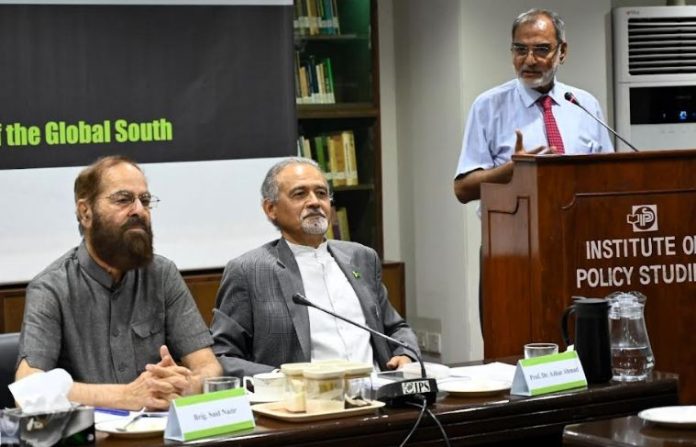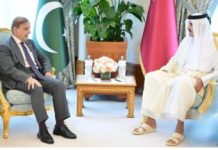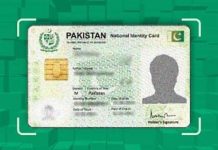ISLAMABAD, JUN 14 /DNA/ – In the evolving global landscape, the Global South has an opportunity to consolidate its influence and recognition as a unified force in international development. By embracing shared principles like mutual respect, collaborative governance, and inclusive development, these nations can effectively tackle challenges, navigate complexities, and contribute to a more sustainable global order.
This was observed by speakers during a panel discussion on ‘The New International Order as an Opportunity for the Development of the Global South,’ held at the Institute of Policy Studies (IPS), Islamabad, as a part of the 2nd International Scientific Conference on ‘New World Order: in statu nascendi.’
The conference was co-organized by the Institute of Political Science University of Warmia and Mazury in Olsztyn, Poland, and the Department of International Relations, Federal Urdu University of Arts, Science and Technology (FUUAST). The two-day conference convened distinguished scholars, policymakers, and experts from across the globe to deliberate on the transformative dynamics shaping the new world order.
The discussion, chaired by Khalid Rahman, chairman IPS, was addressed by Dr Safdar Sohail, executive director, Social Protection Resource Centre, Dr Syed Tahir Hijazi, economist and former member Planning Commission, Brigadier (r) Said Nazir, security and defense analyst, and Dr Du Fang, associate professor, Sichuan University, China, while Dr Azhar Ahmad, IPS associate, moderated the discussion.
Dr Safdar said achieving social stability is necessary for positive global participation in the developing world order. He identified four stages of social development – family, society, social mobility, and interstate social development and noted that Pakistan, in between the first and second stages, must resolve its social instability and governance issues.
The need for this stability is exacerbated by the persistence of military alliances, war threats, and the influence of military-industrial complexes on global security frameworks, noted Brig Said. He urged UN reforms and a global union to address conflicts, emphasizing debt relief, climate change financing, and positive competition from the Global South. He concluded that the UN must ensure world peace or rely on the proliferation of nuclear deterrence to safeguard the peace, urging global cooperation and effective governance.
Adding to this, Dr Tahir highlighted the alarming trend in the emerging world order where MNCs are exerting influence greater than states themselves. He critiqued institutions like the IMF and World Bank for indebting nations worldwide, which has facilitated the power dynamics favoring MNCs. He emphasized that this century’s order would be defined by corporate interests and power and thus Global South must be proactive.
In this regard, China’s commitment to fostering a balanced global order underpins its imperative of inclusive development, said Dr Du Fang. This is prominent within the Shanghai Cooperation Organization (SCO), which China envisions as a multilateral mechanism for peace without advocating military hegemony.
In his concluding remarks, Khalid Rahman noted that the current phase of Global South evolution is based on amelioration and active agency. China’s role in this context, particularly its paradigm of development centered on a ‘shared destiny,’ is an opportunity for the Global South to rise collectively. However, he acknowledged several challenges: the diversity within the Global South, the probability of a shift towards self-interest among leading Global South countries, security concerns, and the Western domination of IT technology. For that, he stressed the importance of focusing on overarching paradigms rather than minor issues to address these challenges effectively.












